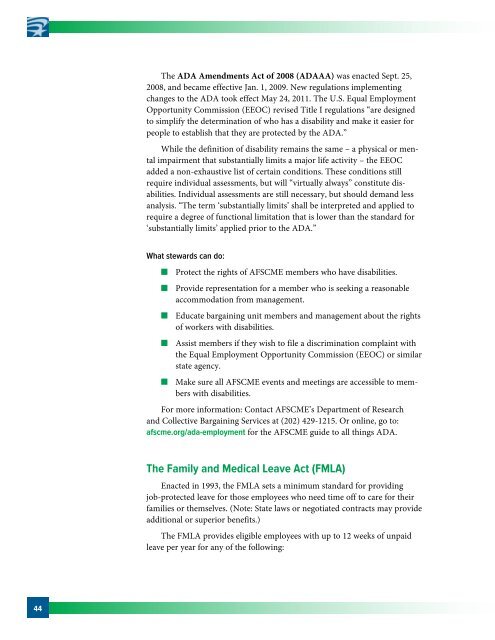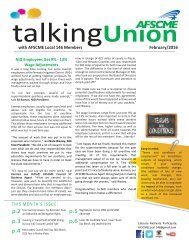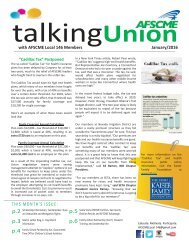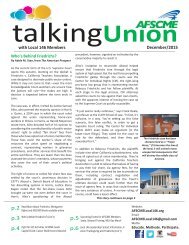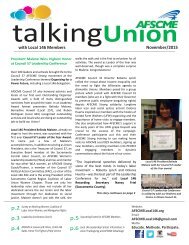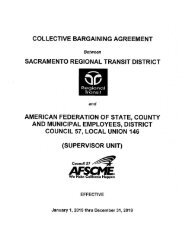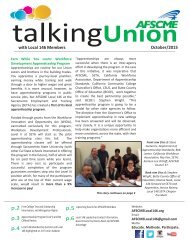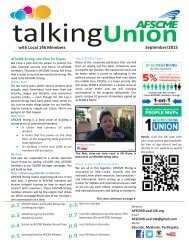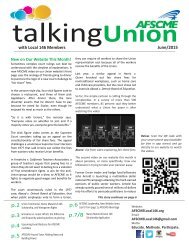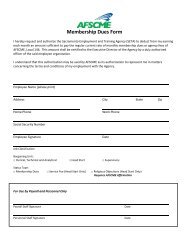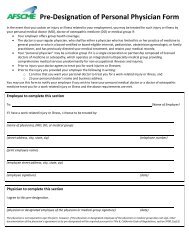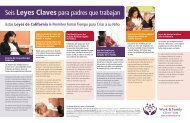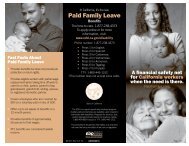STEWARD HANDBOOK
Create successful ePaper yourself
Turn your PDF publications into a flip-book with our unique Google optimized e-Paper software.
The ADA Amendments Act of 2008 (ADAAA) was enacted Sept. 25,<br />
2008, and became effective Jan. 1, 2009. New regulations implementing<br />
changes to the ADA took effect May 24, 2011. The U.S. Equal Employment<br />
Opportunity Commission (EEOC) revised Title I regulations “are designed<br />
to simplify the determination of who has a disability and make it easier for<br />
people to establish that they are protected by the ADA.”<br />
While the definition of disability remains the same – a physical or mental<br />
impairment that substantially limits a major life activity – the EEOC<br />
added a non-exhaustive list of certain conditions. These conditions still<br />
require individual assessments, but will “virtually always” constitute disabilities.<br />
Individual assessments are still necessary, but should demand less<br />
analysis. “The term ‘substantially limits’ shall be interpreted and applied to<br />
require a degree of functional limitation that is lower than the standard for<br />
‘substantially limits’ applied prior to the ADA.”<br />
What stewards can do:<br />
n<br />
n<br />
n<br />
n<br />
n<br />
Protect the rights of AFSCME members who have disabilities.<br />
Provide representation for a member who is seeking a reasonable<br />
accommodation from management.<br />
Educate bargaining unit members and management about the rights<br />
of workers with disabilities.<br />
Assist members if they wish to file a discrimination complaint with<br />
the Equal Employment Opportunity Commission (EEOC) or similar<br />
state agency.<br />
Make sure all AFSCME events and meetings are accessible to members<br />
with disabilities.<br />
For more information: Contact AFSCME’s Department of Research<br />
and Collective Bargaining Services at (202) 429-1215. Or online, go to:<br />
afscme.org/ada-employment for the AFSCME guide to all things ADA.<br />
The Family and Medical Leave Act (FMLA)<br />
Enacted in 1993, the FMLA sets a minimum standard for providing<br />
job-protected leave for those employees who need time off to care for their<br />
families or themselves. (Note: State laws or negotiated contracts may provide<br />
additional or superior benefits.)<br />
The FMLA provides eligible employees with up to 12 weeks of unpaid<br />
leave per year for any of the following:<br />
44


